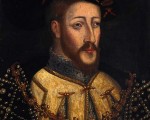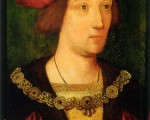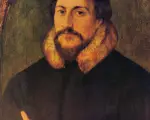
On this day in history events for week 4-10 April.
[Read More...]
This month’s amazing Expert Talk is by Stephanie Mann, author of “Supremacy and Survival”. Her topic, one which is clearly close to her heart, is Thomas More, a fascinating man who it turns out we really don’t know as much about as we should.
[Read More...]
Today’s Tudor history quiz consists of ten questions about “how long”?
Test your Tudor history knowledge with this fun quiz – good luck!
[Read More...]
On 2nd April 1502, Arthur Tudor, eldest son of King Henry VII, died at Ludlow Castle. He was just fifteen years old and had been married for less than five months.
Arthur Tudor had married Katherine of Aragon, daughter of King Ferdinand II of Aragon and Queen Isabella I of Castile. King Henry VII had worked hard for several years to secure a marriage between his son and Princess Katherine to see a strong alliance created between England and Spain. The marriage would also help to put England on the international stage and secure the succession of the Tudors.
[Read More...]
In today’s Claire Chats I talk about all the issues to do with the calendar and dating of documents and sources which are just waiting to catch you out!
[Read More...]
The Huguenots were French Protestants, formed as a part of the general Reformation that started in Germany because of Martin Luther and swept through the Continent. It hit France around 1517, where the movement quickly grew in popularity. The movement was particularly popular in French areas where the population was unhappy with the government or areas that were experiencing economic hardship. The name “Huguenot” is of uncertain origin; some believe the Huguenots are named after Besançon Hugues, leader of the movement in Geneva, Switzerland. Another possibility finds its roots in the German word Eidgenossen, meaning confederates bound by oath, which became aignos in France and referred to patriots living in Geneva who were against the Duke of Savoy during 1520 to 1524. In August 1523, the first martyr, Jean Vallière, was burnt at the stake.
[Read More...]